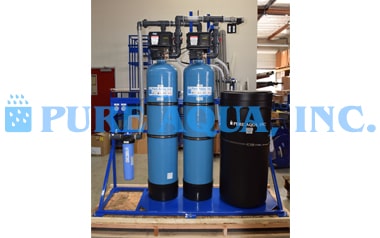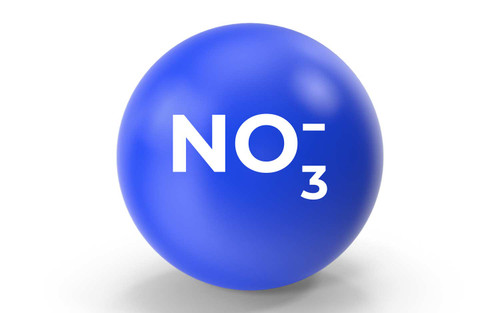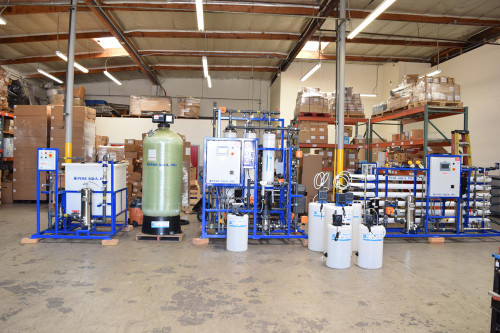Overview: Removing nitrate from water with industry-leading ion exchange system
Industry: Nitrate Removal
This ion-exchange system is model #29F16120-T from our Water Softening systems.
- Twin Alternating ion exchange system for nitrate removal using 16" FRP tank
- Nitrate removal resin as per the attached data sheet (maybe you can use it for more content)
- Fleck 2900 valves one lead and one lag
- Brine tank
- Resin will regenerate with sodium chloride just like a softener, but will exchange chlorides for Nitrates and Sulfates
- All skid mounted on powder coated carbon steel frame, pre piped and wired
[custom-specifications]
Water Concern: High nitrate concentrations are capable of producing the growth in algae through the utilization of eutrophication in water sources. Animals such as cattle are vulnerable to poisoning after ingesting water or plants with high nitrate concentrations. Humans are also at risk when exposed to elevated nitrate concentrations and diseases like blue baby syndrome, and methemoglobinemia can occur in infants. Because of the serious nature of heavy nitrate consumption in water, many environmental agencies have placed strict regulations to ensure nitrate removal from water before being supplied to society. As of today, there is a maximum level of 50 mg/L of nitrate in water allowed for safe human consumption.
[/custom-specifications]
[custom-features]
Applied Solution: Pure Aqua engineers ion exchange systems that are suitable for small water suppliers due to the cost-effectiveness, simplification and efficiency of these technologies. Ion exchange systems function in a similar manner as a regular water softener system and are easily able to eradication more than 90 percent of nitrate from water. The ion exchange process utilizes a solid base anion exchange resin that is restored through the addition of common salt. There are various ion exchange resins that have proven to work effectively in the removal of nitrate from water due to being especially good at eliminating ions such as sodium, calcium, and bicarbonates. Generally, if the ratio of nitrate to sulfate is high then a high capacity resin is in order, but if that same ratio is low then a lower capacity resin can be selected for use.
[/custom-features]
[custom-usage]
- Household water
- Protection of heat transfer elements and spray nozzles
- Cooling tower make-up water
- Groundwater remediation
- Large laundry for hotels and restaurant facilities
- Boiler & reactor feed and make-up water
- Wastewater re-use
- High purity water
- Contact process water
- Pre-treatment for reverse osmosis or ion exchange systems
[/custom-usage]
[custom-documents]
[/custom-documents]
 ENGLISH
ENGLISH ESPAÑOL
ESPAÑOL العربية
العربية PORTUGUÉS
PORTUGUÉS FRANÇAIS
FRANÇAIS














